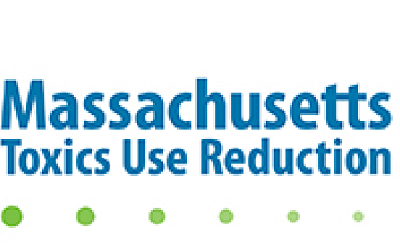Is Your Company Aware of the TURA Chemical List?
When we talk about the deleterious effects that toxic industrial cleaners can have on humans and the environment, we often reference the Environmental Protection Agency’s List of Lists — a list of chemicals whose regulation or ban is enforced by the federal government. But state governments haven’t been sitting idly by while the EPA does all the work. As Massachusetts’ Toxic Use Reduction Act (TURA) shows, the fight for better human and environmental safety through the use of non-toxic cleaners is alive and well at the state level, too.
History of the TURA Chemical List
On July 24, 1989, Massachusetts Governor Michael Dukakis signed the TURA into law, which immediately affected the Eastern Seaboard state in several ways. Initially, the TURA set out to achieve the following five goals:
- Reduce generation of toxic waste in the state by 50 percent.
- Comply toxics reduction with federal, state, and municipal safety laws.
- Support Massachusetts businesses while promoting cleaner production practices.
- Strengthen enforcement of environmental state laws.
- Promote interaction among state agencies that administer toxics-related programs.
Helping the state achieve the goals are four partner organization: the Department of Environmental Protection (MassDEP), the Office of Technical Assistance and Technology (OTA), The Toxics Use Reduction Institute (TURI), and Administrative Council on Toxics Use Reduction. As described below, with the support of these entities, the TURA Act has been successful since its implementation over 25 years ago.
Effects of the TURA Act
The advent of the TURA Act set in motion several important accomplishments related to the reduction of toxics throughout Massachusetts. Highly notable have been a 50 percent reduction in the generation of toxic waste (accomplished in 1998), and the following achievements (accomplished by 2005) of the “Core Group” of industries that the TURA requires to report on their use of toxics:
- 40 percent reduction in toxic chemical use
- 71 percent reduction in toxic byproducts
- 41 percent reduction in toxics shipped
- 91 percent reduction in on-site releases of toxics to the environment
- 60 percent reduction in transfer of toxics off-site for further management
The act is designed to benefit businesses while goals are pursued, providing the following advantages, regardless of business’ size or Core Group status: modernization of production practices, improvement of operation and maintenance, reformulation of products with non-toxic components, and recycling of leftover raw materials during production.
Most Recent List of Chemicals on TURA
Like the EPA’s List of Lists, Massachusetts’ TURA Act has grown to include more substances than it originally listed in 1989. View the current list in its entirety by accessing the link. If any of the chemicals your company or organization uses appear on the list, contact the team of chemists at Ecolink about implementing an environmentally preferred replacement.
Are Your Chemicals on the TURA List?
Is so, now is the time to start the process of replacing them for four reasons: to protect the health of workers, better protect the environment, avoid government fines for usage violations, and avoid the financial fallout of chemical injuries in the workplace, especially: increased number of sick days taken, workers compensation claims, and chemical injury lawsuits.
Ecolink specializes in providing industrial, eco friendly cleaning solutions in a variety of categories. With our solutions in place, you can rest easier, knowing that you use the best products for the safety of your workers and the environment. Call us today at (800) 563-1305, or complete the contact form on our website. We look forward to assisting you!





